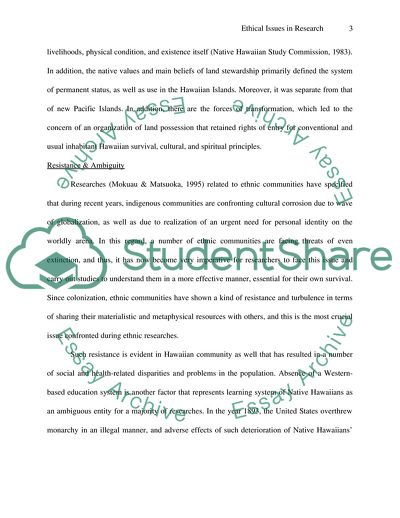Cite this document
(Ethical Issues in Conducting Research With Native Hawaiians Essay, n.d.)
Ethical Issues in Conducting Research With Native Hawaiians Essay. https://studentshare.org/psychology/1727572-ethical-issues-in-conducting-research-with-native-hawaiians
Ethical Issues in Conducting Research With Native Hawaiians Essay. https://studentshare.org/psychology/1727572-ethical-issues-in-conducting-research-with-native-hawaiians
(Ethical Issues in Conducting Research With Native Hawaiians Essay)
Ethical Issues in Conducting Research With Native Hawaiians Essay. https://studentshare.org/psychology/1727572-ethical-issues-in-conducting-research-with-native-hawaiians.
Ethical Issues in Conducting Research With Native Hawaiians Essay. https://studentshare.org/psychology/1727572-ethical-issues-in-conducting-research-with-native-hawaiians.
“Ethical Issues in Conducting Research With Native Hawaiians Essay”. https://studentshare.org/psychology/1727572-ethical-issues-in-conducting-research-with-native-hawaiians.


